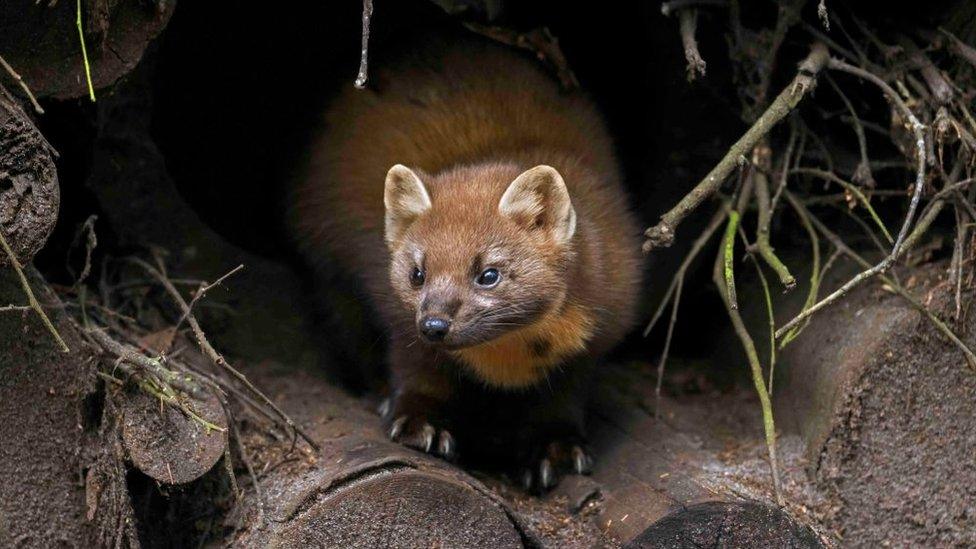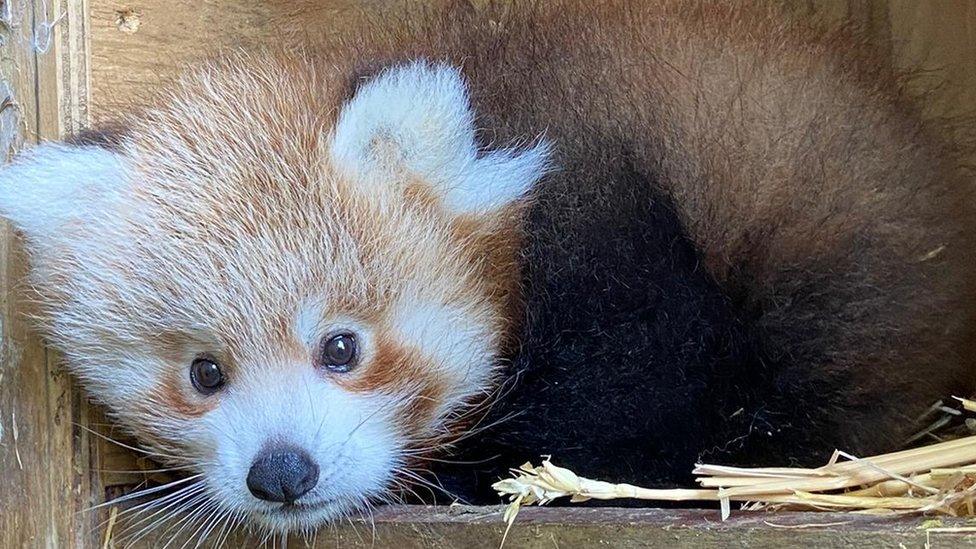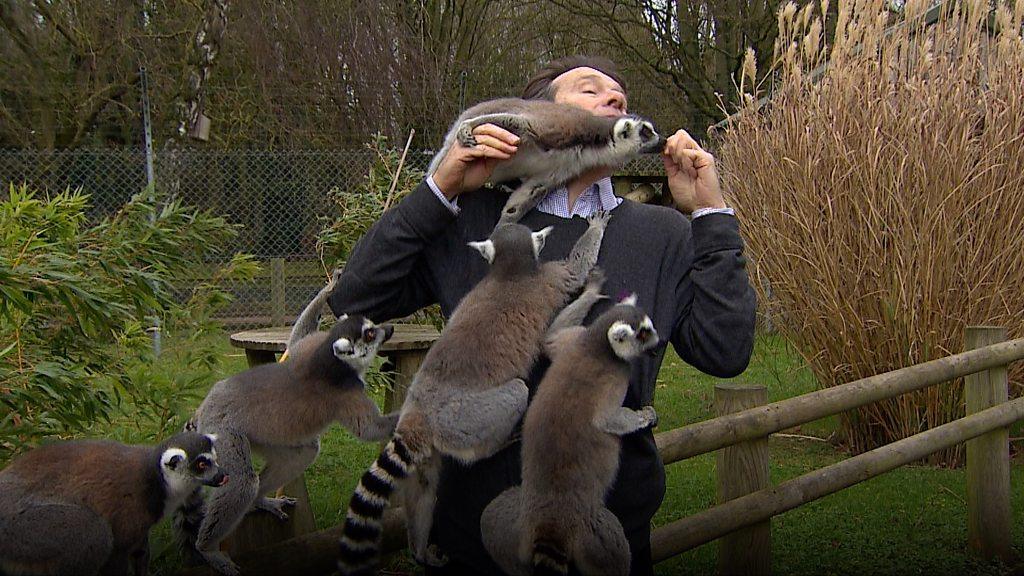Norfolk's Banham Zoo plans more native species
- Published

Pine martens found in Wales are planned for Banham Zoo which is proposing setting up new enclosures for UK species
A zoo is planning to expand its native species breeding and wildlife programmes over the next seven years.
Banham Zoo in Norfolk wants to enhance the site by utilising unused land on its 50 acres to create new enclosures for animals from the British isles.
The attraction said the number of exotic creatures would not be reduced as a result.
"It is massively essential that we do conservation on our doorstep," it said.

An indoor conservation, education and skills hub is also part of the new-look Banham Zoo
Zoos have faced a number of challenges in recent years, including the Covid pandemic, bird flu, difficulties transferring animals post-Brexit, and would-be visitors weathering the cost-of-living crisis.
Banham Zoo, which is run by the Zoological Society of East Anglia (ZSEA), says it hopes the changes on which it is consulting will help create a more resilient and sustainable future.
It plans to use the areas on the edges of its parkland - the ponds, lakes, marshes and forests - for its native species programme.
Claudia Roberts, ZSEA chief executive, said: "So what we wanted to do is create a journey through the UK which would provide an interconnective ecological landscape which would work with our existing site to enrich the visitor experience and enhance biodiversity."
She added: "There's no chance of [international species] dwindling, it's a major part of what we do."

Work would continue with international species like this red panda - born at Banham Zoo in Norfolk last autumn
The charity has sought "multi-million pound" backing from the National Lottery, future Levelling Up funding streams, and businesses.
"It's bold, it's innovative but also provides future stability for Banham Zoo," said Ms Roberts.
ZSEA said Brexit had led to significantly less movement of animals between the UK and other countries, with only 211 transfers taking place in 2022, compared to the usual 1,400 per year.
"This drastic reduction, which is almost 85%, is a direct result of the new regulations enforced since Brexit and greatly affects the conservation efforts of not only us but also other zoos around the country," ZSEA stated.

Find BBC News: East of England on Facebook, external, Instagram, external and Twitter, external. If you have a story suggestion email eastofenglandnews@bbc.co.uk, external
Related topics
- Published3 January 2023

- Published8 January 2018
